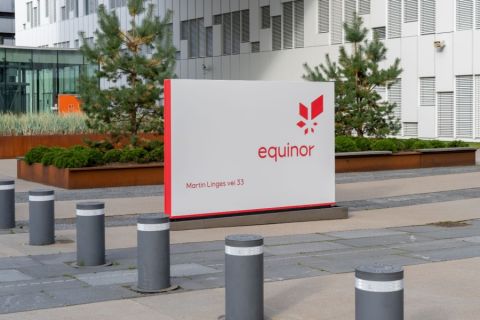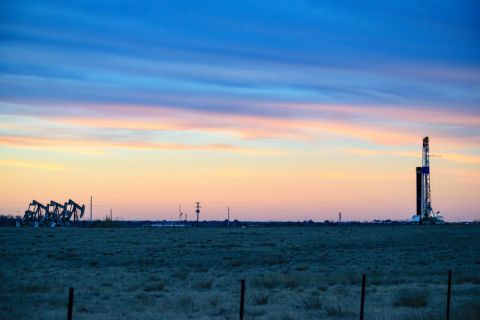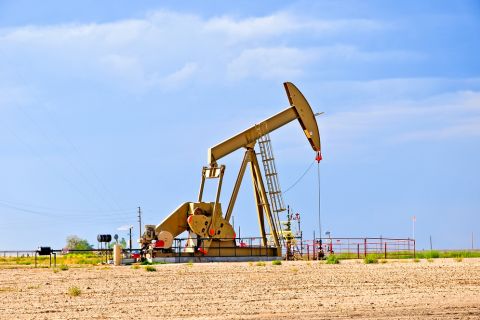Producers anxious for ExxonMobil Corp. to begin divesting assets may have to wait a while: the supermajor is having trouble keeping production up. The odds are that it will want to buy assets in the near future, rather than sell, except for some highly underperforming or noncore properties, which will certainly include some U.S. assets. The company's second-quarter U.S. gas production declined 9.3% from second-quarter 2001, which was down 9% from second-quarter 2000. U.S. oil production declined 3.2%, compared with a year earlier. Canadian production of each commodity improved slightly. Deutsche Bank major oils analyst JJ Traynor says 2002 for ExxonMobil "has been a wake-up call, with a tough downstream environment exposing the group's leverage to refining margins, and continued structural decline in the U.S. upstream gas position. Shell achieved better returns in 2001 (21.4% vs. 20%), and by second-quarter 2002, ExxonMobil's returns had fallen to 12%, and converged with global peers, BP and Shell." At the current rate and considering upcoming developments, he expects the company's oil production to grow 3.2% and gas production to grow 2% a year in the coming years by developments offshore West Africa, in the Caspian and in the Gulf of Mexico. "However, ExxonMobil seems to be lagging its peer group in exploration, with just 50% of five-year reserves replacement from the drillbit, and a puzzling-low exploration score." For the first time since 1994, the company's reserves replacement ratio has fallen below 100%. The rate for the most recent quarter was 98%. A 2-trillion-cubic-foot booking, "mostly from Qatar, in nonconsolidated discoveries, took gas reserves replacement to just over 100%," he says. Meanwhile, the mega-oil's finding and development costs are rising-now at $4.93 per barrel of oil equivalent, compared with an industry average of $3.54, according to Traynor. "Can ExxonMobil deliver on reserves growth in politically complex and higher-cost provinces, to offset these unflattering trends?...ExxonMobil is running to stand still...." Fadel Gheit, senior energy analyst for Fahnestock & Co., tells senior financial editor Brian A. Toal in this month's cover story, that Royal Dutch/Shell, BP and ExxonMobil may target large U.S. independents to jump-start growth. "Anadarko Petroleum would make a very nice fit for any of those companies," Gheit tells Toal. "ExxonMobil, for instance, could borrow $20 billion while maintaining its triple-A credit rating, acquire Anadarko and increase its U.S. gas reserves and production by double digits-an unheard of growth rate for a company that size. And even if ExxonMobil were to pay a 30% premium, the acquisition cost of Anadarko's reserves would still be cheaper than if that integrated bought back its own stock." According to Tyler Dann, E&P analyst with Banc of America Securities, ExxonMobil's "long-term story is still intact." With a debt-to-capital ratio of about 5%, it could afford to buy its way back on track. -Nissa Darbonne, Managing Editor
Recommended Reading
Equinor Acquires Stake in Standard Lithium Smackover Projects
2024-05-08 - Equinor’s transaction, completed effective May 7, includes interests in Standard Lithium’s flagship South West Arkansas Project and East Texas properties.
Crescent Point Divests Non-core Saskatchewan Assets to Saturn Oil & Gas
2024-05-07 - Crescent Point Energy is divesting non-core assets to boost its portfolio for long-term sustainability and repay debt.
Permian Resources Adds More Delaware Basin Acreage
2024-05-07 - Permian Resources also reported its integration of Earthstone Energy’s assets is ahead of schedule and raised expected annual synergies from the deal.
Evolution Petroleum Sees Production Uplift from SCOOP/STACK Deals
2024-05-07 - Evolution Petroleum said the company added 300 gross undeveloped locations and more than a dozen DUCs.
Riley Exploration Permian Closes Delaware Basin Bolt-on
2024-05-08 - Riley Exploration Permian said it added 13,900 acres and up to 25 net locations in Eddy County, New Mexico.





